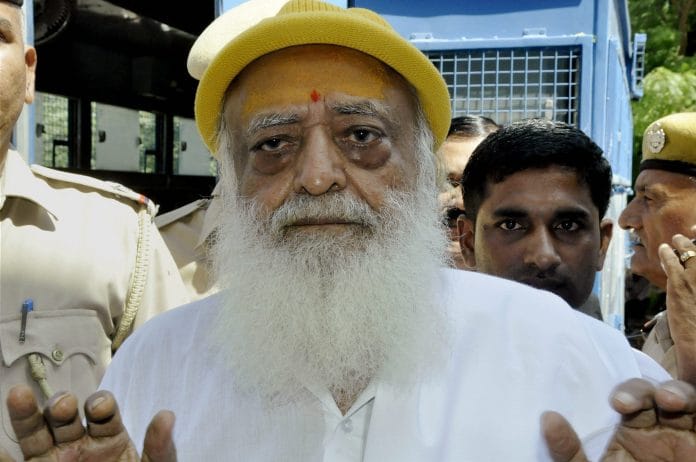Days after the government passed an ordinance allowing the death penalty for child rapists, Twitter is abuzz with solidarity messages for the ‘innocent Asaram Bapu’.
Much like the problematic ‘good terrorist, bad terrorist’ syndrome in the world beyond, people in India seem to be at pains to distinguish the ‘good rapist’ from the ‘bad rapist’.
Days after the government passed an ordinance allowing the death penalty for child rapists, Twitter is abuzz with solidarity messages for the “innocent Asaram Bapu”, who has just been convicted of a minor devotee’s rape by a sessions court. They may seem at odds, but blood-thirst for certain kinds of rapists and screams of innocence for others are, in fact, theoretically and logically consistent.
Consider the long-held female adage that rape is about power, not sex. The more economically and socially powerful the perpetrator, the higher the number of layers that protect him from law. Asaram may have been convicted, but here’s what it entailed: 4.5 years of the complainant’s alleged harassment, attacks on nine witnesses in the case, and the death of three others. Yet, tweets and messages in support of the “innocent Asaram Bapuji” deluge social media feeds today.
People either refuse to acknowledge allegations of sexual violence against men in power or, worse still, justify it. It’s like marital rape. The sexual autonomy of the woman is of little concern.
The power exerted through rape is not just about sexual control over a victim’s body; it’s about control on her mind and social and economic standing as well. The alleged Unnao rape corroborates this argument. After raping the minor, the accused, BJP MLA Kuldeep Singh Sengar, reportedly wiped her tears and promised her a “good job”. When she resisted, he allegedly threatened to kill her father, who eventually died in custody.
Two data points from the latest National Crime Records Bureau (NCRB) data, too, put into perspective the power politics inherent in rape. First, in recent years, sexual violence against the Scheduled Castes (SC) has been the most dominant form of atrocities perpetrated against the marginalised group, increasing marginally each year.
Second, in 94 per cent of the total cases of rape against women and children in 2016, the offender was known to the victim — either a close family member, a neighbour, or an acquaintance.
The power of Asaram over the victim was even greater than that of the ‘ordinary’ rapist, being a person of spiritual authority towards whom she felt devoted.
While the law may have given justice to the victim for now, a big cloud continues to loom, over her and others, in the form of the impunity given by society to powerful assaulters — godmen, husbands, uncles and bosses – held guilty by courts as well.
For the ‘bad rapist’, no law is brutal enough; for the ‘good one’, none immune to misuse.






